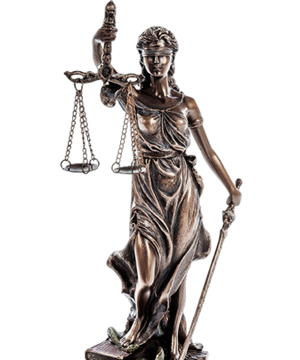Supreme Court Rules on Prison Litigation Reform Act: Jury Trials for Inmate Claims
Washington, D.C. — In a significant ruling today, the U.S. Supreme Court addressed an important aspect of the Prison Litigation Reform Act (PLRA), leading to a decision regarding the rights of inmates when alleging misconduct by prison staff. The case, Perttu v. Richards, centers on whether inmates have the right to a jury trial when contesting claims that their access to administrative grievance processes has been obstructed.
Background of the Case
Enacted in 1995, the PLRA aims to reduce the volume of federal litigation by requiring prisoners to exhaust all available administrative remedies within the prison system before seeking judicial intervention. However, the law specifies that if an inmate faces obstacles—such as a prison guard allegedly destroying grievance documents—those remedies may not be considered "available."
The case arose when the inmate, Perttu, alleged that a guard had hindered his ability to file grievances. This prompted the guard to seek summary judgment on the grounds that Perttu had failed to exhaust his administrative options. A magistrate judge, after hearing evidence, determined that the inmate’s claims were not credible, leading to a dismissal by the district court.
Supreme Court’s Decision
In a narrow 5-4 ruling, the Supreme Court sidestepped a potentially contentious constitutional issue regarding the Seventh Amendment, which offers the right to a jury trial for factual disputes. Instead, the Court concluded that the PLRA necessitates a jury trial in situations where the exhaustion of remedies is disputed and closely linked to the case’s merits. This interpretation, however, raised eyebrows among dissenting justices. Justice Amy Coney Barrett pointedly noted that the statute does not explicitly mention this requirement and criticized the majority for advancing an unargued statutory theory.
“The Court spins a statutory theory that Richards has never even mentioned, much less developed,” Barrett stated in her dissent. She further expressed concern about the departure from established legal practices, highlighting the need for clarity in such significant rulings.
Implications Moving Forward
Today’s decision, which hangs primarily on statutory interpretation rather than a constitutional foundation, leaves room for Congressional action should lawmakers choose to revisit the PLRA’s provisions. Legal experts suggest it remains unlikely that Congress will intervene anytime soon, but the ruling marks a pivotal moment in the ongoing dialogue about prisoners’ rights and access to justice.
As further developments emerge, the implications of this ruling on both prisons and inmate grievances may prompt legal analysts to reconsider the nuances of the PLRA. This decision underscores the ongoing complexity of the American legal landscape as it relates to civil rights within correctional facilities.
Further updates will follow as the legal community continues to assess the ramifications of this ruling.

Focuses on crime, public safety, and regional events.
Bio: Marcus is a community-based journalist passionate about reporting impactful stories that matter most to readers.

